TSH is the most sensitive indicator of thyroid metabolism in patients and is regulated by a negative feedback system. Through this inhibitory loop, increased levels of T3 and T4 provoke a decrease in TSH secretion and vice versa. Hypothyroidism and hyperthyroidism can be diagnosed by TSH, free T3 and free T4 analysis.
Thyroid Stimulating Hormone (TSH)

Thyroid Stimulating Hormone (TSH)
Thyroid Stimulating Hormone, TSH, is secreted by the anterior pituitary. It stimulates growth and activity of the thyroid gland by the release of triiodothyronine (T3) and thyroxine (T4).
Hypothyroidism demonstrates increased TSH levels and low T4. This is the most common form of thyroid disorder.
Symptoms include decreased basal metabolic rate, weight gain, lack of energy, fatigue, depression, psychosis, lethargy, dry skin, brittle hair, bradycardia, heat intolerance – cold all the time, constipation.
Primary hypothyroidism can occur as a result of:
- Autoimmune onset causing primary atrophic hypothyroidism or Hashimotos thyroiditis.
- Acquired as a result of iodine deficiency, post thyroidectomy, post radioactive iodine therapy, subacute thyroiditis or drug induced (amiodarone, anti-thyroid medications, lithium, iodine).
Hyperthyroidism demonstrates decreased TSH and increased T3 and T4 secretion.
Symptoms include increased basal metabolic rate, weight loss, increased appetite, anxiety, agitation, hair loss, tachycardia, palpitations, atrial fibrillation, heat intolerance, diarrhoea.
Thyrotoxicosis is the clinical and biochemical effect of excess thyroid hormone. Hyperthyroidism can occur because of Graves disease, an autoimmune disorder caused by antibody to TSH receptors resulting in a clinical syndrome of uncontrolled excess release of circulating free thyroxine, free triiodothyronine or both and suppression of circulating TSH. It accounts for approximately 75% of cases of hyperthyroidism, affecting more women than men. Patients typically have goitre and display exophthalmos. 90% have antithyroid antibodies and diffuse uptake on radioiodine scan. Other causes of hyperthyroidism include toxic multinodular goitre especially in the elderly or from a toxic adenoma, an isolated nodule abnormally increasing T3 and T4.
Additional diagnoses to consider are transient thyroiditis – subacute, silent or post partum; or DeQuerivans thyroiditis, a painful tender thyroid gland with a raised ESR.
Test Results:
| Raised TSH, low T4 | Hypothyroidism. |
| Raised TSH, normal T4 | Consistent with subclinical hypothyroidism. |
| Raised TSH, raised T4 | Thyroid hormone resistance, rarely TSH tumour. |
| Low TSH, raised T3 or T4 | Hyperthyroidism. |
| Low TSH, normal T3, T4 | Subclinical hyperthyroidism. |
| Low TSH, low T3 and T4 | Sick euthyroid disease, or pituitary disease. |
Please contact us for more information on the reference ranges used at Enfer Medical.
Case Study
Delivering True Innovation
Our Services




5mL venous serum
Enfer Medical
Tests/Assays
Enfer Medical offers the chemiluminescent microparticle immunoassay (CMIA) technology for the quantitative assay for Thyroid Stimulating Hormone (TSH). This test is CE-IVD certified.


Patient
Request Form
For clients using the Enfer Medical Client Portal, the Enfer Medical Patient Request Form (PRF) will be generated when you have completed your “Test Request” within the portal linked below.
Please note that samples suspected of containing high risk pathogens such as Mycobacterium tuberculosis should be clearly identified on the form and packed separately from other samples.



Results are available next working day.
This assay is available seven days a week.
Packaging
The packaging/preparation of samples for delivery to the laboratory are required to be in adherence to all national regulations for the safe transport of biological materials. HSE guidance can be reviewed HERE.
There are specific packaging instructions and labelling requirements requiring triple packaging including:
- Primary leak-proof container – tube or vial containing the sample.
- Secondary watertight container, with absorbent material, intended to protect the primary container.
- Outer container protects the secondary container.
- Patient Request forms must be placed between the secondary container and the outer shipping container.
Further information on the packaging/preparation of samples for delivery to the laboratory is contained within the Enfer Medical Laboratory User Manual which clients are provided with.


Storage & Stability
Specimens must be tested within 7 days of collection and stored at 2-8°C


Samples
In addition to the packaging of samples, the transport/delivery of clinical samples to the laboratory is required to be in adherence to all national regulations for the safe transport of biological materials. Enfer Medical provides a fully compliant logistics service, aligned with clients’ testing requirements.
Prompt transport of specimens:
To ensure prompt testing of samples and release of results within the published test turnaround times, samples should arrive to the laboratory by 18:00. Test turnaround time is measured from receipt of the sample at the laboratory until the time the authorised results are reported to users.
of Samples
In rare cases specimens may not be suitable for testing on arrival to the laboratory. In that case the sample will be rejected at the receipt stage and the service user will be notified immediately and an explanation as to why the sample could not be processed will be provided. Reasons why samples cannot be processed include but are not limited to:
- Samples received beyond the stability limits and/or not at the correct temperature indicated for each test.
- Incorrect sample type received.
- Leaking samples, sample not received or sample insufficient for analysis as stated below within sample requirements.
- Non-compliant samples or request forms i.e. those missing sample date information, missing sample test request and/or missing sample site/type information.
- Samples received without the necessary patient identifiers.
Our Services




Quantitative results for TSH are reported in numeric value in mIU/L. Please contact us for more information on the reference ranges used at Enfer Medical.
Critical results are communicated in accordance with the Communication of critical results for patients in the community- national laboratory handbook CSP041/2019
Accessing
Your Results
Following receipt at the Laboratory, results should be available on the next working day and will be reported to the referring clinician via the Enfer Medical Client Portal or in a format agreed with clients.
Established clients can login to the portal using the link above.




